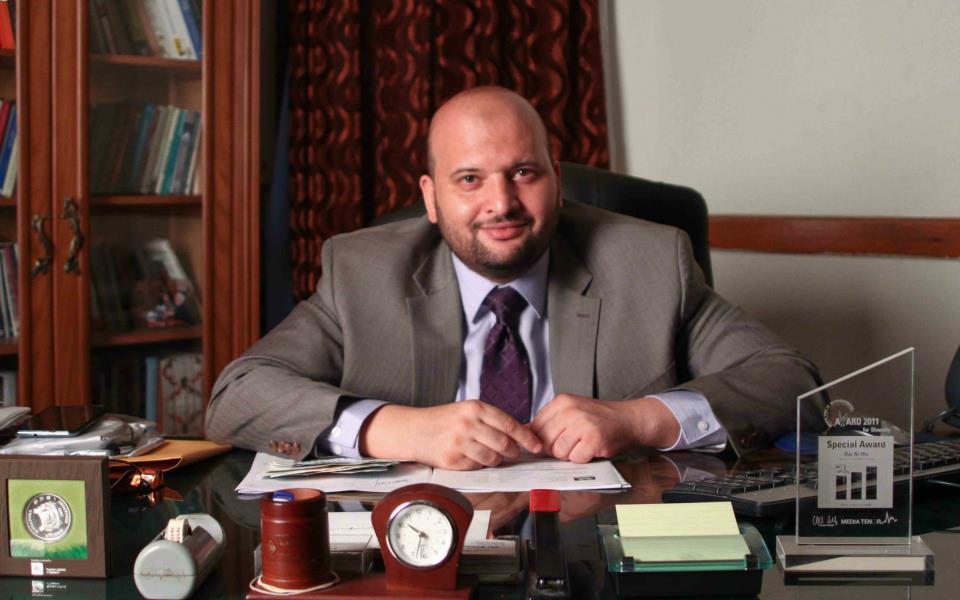The role of Egypt’s Grand Mufti in upholding death sentences demystified

Ibrahim Negm
Senior Advisor to the Grand Mufti of Egypt
Waves of controversy and confusion have been widely circulating regarding the position of the Grand Mufti of Egypt, Shawky Allam, with respect to the latest death sentences that were decided upon in the past weeks.
The Grand Mufti wishes to clarify that these decisions have been referred to the Office of the Grand Mufti for consultation in conformity with the standard procedure set out for cases in which the defendant has been sentenced to death.
Pursuant to article (2/381) of criminal procedural law, it is obligatory for the criminal court to refer death penalty cases to the Grand Mufti before passing the death verdict. This is done after all hearings and deliberation end and after the panel of judges unanimously agree on the death decision.
The Grand Mufti reviews the cases referred to him by the criminal court and examines all papers from the beginning of the case. If he finds unequivocal evidence in the case papers that indicates the guilt of the accused according to Islamic law, he issues his opinion based on the evidence before him. Otherwise, he applies the Prophetic tradition which later became an axiom of Islamic law applied in criminal cases by Muslim jurists throughout the history of Islamic legal thought, “It is better for the judge to err on the side of pardon than to err in meting out the punishment.” This is because the Qur`an forbids the killing of any individual without justifiable right. It therefore prescribes verification of the crime, adapting it to Islamic legal evidentiary standards, and the existence of implicating evidence recognized by Islamic law against the accused.
In brief, the criteria of fatwa for death penalty cases comprises the obligation to review the crime and evidences based on the objective standards prescribed by Islamic jurisprudence and adapting and conceptualizing the crime as intentional murder only if it meets the description outlined by Islamic jurisprudence for this type of crime.
It bears noting that religious authorities are always encouraged to abide by the well-established principle that even slight doubts may give reason to cancel the stipulated penalties. In point of historical fact, the Caliph Umar suspended the penalty for theft in times of famine. We may well imagine that other difficult circumstances may similarly give reason to suspend other penalties.
Assisting the Grand Mufti, is a panel consisting of three counselors from the heads of the court of appeals. Their task is to assist through examining the case files to decide whether the offense deserves a retaliatory punishment, a discretionary punishment, the prescribed punishment for the crime, or none at all. In light of the gravity of the death sentence and due to the complete secret nature of such cases, they are moreover under obligation to review the case and draft a report inside the Dar al-Iftaa’s premises without having any report or paper related to the case in question making its way outside Dar Al-Iftaa. Afterwards, the counselors submit the case to the Grand Mufti for his final opinion which he issues in the name of Dar Al-Iftaa. After the Grand Mufti carries out his assessment, the eventual fatwa will be consultative, and his decision will not be binding upon the Court.
Furthermore, it bears noting that there is due process that the legal system follows meticulously in these cases. The decision carried out by the judge is a first step to a long legal process. According to Egyptian law, all defendants have the right to appeal the original court decision at the Court of Cassation. In addition defendants retain the right to argue their case in person, and the court will be obliged to re-start the proceedings anew.
Last but not the least, one of the fundamentals of a democracy is the separation of the different authorities within the system particularly the independence of the judiciary. Our judiciary is independent. It remains the main task of the judiciary is the application of justice; bringing justice to every citizen in an absolute disregard to who he/she is or what is his/her affiliations or functions. Only abstract justice and providing the legal guarantees to the accused is the higher objective of the judiciary. Nothing less
 Arabic
Arabic French
French Deutsch
Deutsch Urdu
Urdu Pashto
Pashto Swahili
Swahili Hausa
Hausa
